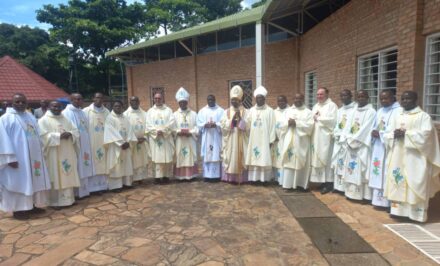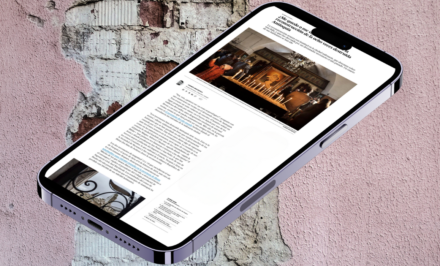ARGENTINA, Carlos E. Barrio y Lipperheide •
We live in an era of permanent changes. The advancement of technology is generating the need for us to adapt ourselves continuously to new human and labor scenarios making it difficult to predict the future. —
In this sense, Andrés Oppenheimer [1] commented, “Oxford University predicted 47% of jobs run the risk of being replaced by robots or computers with artificial intelligence in the United States during the next 15 to 20 years.”
While Argentina and the other countries in the process of development are not the USA, technological changes still tend to expand throughout the world at a great pace.
Exponential growth
This trend towards a technological world that jeopardizes the work and the way producing is confirmed by the so-called Moore Law, which states the power of microchips is doubles every two years, which places us in front of the need to modify almost permanently the productive processes and services we offer. Thomas L. Friedman said that if we take, for example “…a first generation Intel microchip from 1971, the 4004, and the latest one that it has been launched on the market, the sixth generation Intel Core processor, you will see that the last chip offers 3,500 times more performance, is 90,000 times more efficient terms of energy, and its cost is 60,000 times less.” [2]
These developments confront us with the need to adapt to new changing scenarios in the world of work and business. Adaptability is proving to be a key factor to be taken into account by those who work and do not remain on the sidelines.
Weak competencies
Leaders face new challenges in which the so-called “soft skills” (as opposed to the “hard”) are increasingly relevant, because of the importance of human adaptation to these new scenarios.
John C. Maxwell said “Bruna Martinuzzi, educator and author, cites a study by an organization called The Economist Intelligence Unit. There, the three leadership qualities which will be important in the coming years were identified: “the ability to motivate staff (35%), the ability to work well in a across cultures (34%), and the ability to facilitate change (32%).” These three qualities require adaptability.
A more recent study developed by Right Management and published in The Flux Report makes it clear that adaptability growing need. It states that 91% of labor market hires will be based on the individual’s ability to deal with change and uncertainty. Good leaders adapt. They change. They do not remain static because they know that the world around them does not remain static. This has always been the case, but it has never been so evident as it is today, nor has the ability to change quickly been more important than it is today.”[3]
The need for adaptability
The effect that is taking place in leaders facing this need for adaptability is that of a certain state of uncertainty and insecurity, because they do not have a clear idea of the direction to follow and do not achieve the necessary adaptation to these changes. The challenge is to develop the capacity to adapt without losing focus on where to go. Technological change obliges us to change our way of thinking, leading, and acting at work, but without losing our way. That is the challenge of the present leadership!
I find in Joseph Kentenich a wise response to the dilemma posed – by proposing an innovative leadership based on developing “juridical attachments, only those necessary, as much freedom as possible, and cultivating the spirit in all aspects and in a full and assured way”[4].
Kentenich’s formula – not only (but, yes) for Schoenstatt, but for businesses
Fr. Kentenich proposes to us “a strong limitation or adequate reduction of power in the organizational-juridical, united with a fullness of power extraordinarily rich in what is vital.”[5]
Fr. Kentenich’s formula is the right answer for contemporary leadership where great flexibility and adaptability are required, without losing the focus of direction.
The tendency to strengthen the legal and/or organizational attachments in the company, which in the past led it to success, is the temptation for many companies and leaders, who seek to “ensure” the achievements obtained, believing that the success of the past will be repeated without the solution of continuity if the formula used is reinforced. There are many examples that show us this failure, such as Kodak, Blockbuster or Blackberry, just to name a few.
Often businesses are guided by a determined – and rigid – conception of themselves, which ends up binding them tightly into a fixed form of producing, managing, relating to employees and social environment, running the risk of producing an emptiness of spirit and loss of contact with the profound and authentic in work and the person. On the other hand – from this point of view – they tend to reinforce the organizational structures in order to assure this conception of themselves.
The spirit creates a form for itself…
We have to be aware of the validity of the old axiom quoted by Fr. Kentenich, which maintains that “the spirit creates a form; the form protects the spirit, but over time, carries with it the danger of devouring it.” [6]
It is the primacy of the cultivation of the spirit in the Kentenich leader, which will allow him to respond to the new qualities required in the world of work, as proposed by Bruna Martinuzzi. Only a man filled with the spirit will be able to motivate his team, understand the transcultural changes and facilitate the changes. Only those who develop a free and creative spirit will have an attentive ear to these new realities and will live more detached from the rigid organizational structures that seek to limit it.
It is this spirit that will lead you to make contact with the truly profound changes of each moment, which are gestated behind the technological changes. Only an attentive and decontaminated view at the immediate and urgent will be able to be the light on the way.
This leadership will then be governed by the model of the new man that Kentenich proposes to us, as a “self-responsible personality, interiorly free and independent, animated by the spirit, who has the will to decide and is joyful in it and who is kept away both from slavery to form and from an arbitrary lack of attachments.” [7]
This leader will have to be open to pausing to reflect on the questions asked by John C. Maxwell: “How disposed are you to change? Are you ready to start asking more questions instead of giving more answers? Are you ready to become a better listener, a better observer?”[8]
We allow ourselves to be trampled by work and we lose life
The excess of tasks posed by the technological acceleration in which we move, leads us to the continue fulfilling what Gary Hamel and C.K. Prahalad pointed out more than 20 years ago that “…..the senior managers devote less than 3% of their energy to generate a collective perspective of the future”[9], turning this trend into a vicious circle instead of a virtuous one.
Without a reflective pause, we will not be able to advance toward the development of a vision enriched by everyone’s contribution.
As Enrique Shaw tells us, “let us know how to listen with the intention of understanding”[10]. Only in this way can we develop the soul of the company in which we discover a shared vision that gives it meaning.
Only a man who “…..cultivates the spirit in all aspects, fully and securely”[11] will be able to guide the course and make the enterprise”…..a community of life…..a home of human relationships”[12] amidst the permanent technological change that we must unravel and to which we must adapt every day.

Fotos: iStock Getty Images/metamorworks, www.metamorworks.com, licensed for schoenstatt.org
Carlos E. Barrio y Lipperheide, carlosebarrio@gmail.com
[1] Oppenheimer, Andrés. Whoever can, save yourself! The future of work in the era of automation (Spanish Edition) (Position in Kindle 16.17). Penguin Random House Group Editorial Mexico. Kindle Edition.
[2] Thomas L. Friedman. “Thank you for arriving late.” Editorial Paidós (2018), p. 53.
[3] Maxwell, John C. The changes in leadership (Spanish Edition) (p. 6) Groupo Nelson. Kindle Edition
[4] Joseph Kentenich. “The world of personal attachments” (Editorial Nueva Patris – Herbert King, 2015) p. 81
[5] Kentenich, Joseph . The secret of Schoenstatt vitality – Vol. I (Spanish Edition). Nueva Patris, Kindle Edition.
[6] Joseph Kentenich. “The world of personal attachments” (Editorial Nueva Patris – Herbert King, 2015) p. 82.
[7] Horacio Sosa Carbó. “The Challenge of values.” (Editorial EDUCA, 2000). P. 174.
[8] Maxwell, John C. The changes in leadership (Spanish Edition) (p.9). Grupo Nelson. Kindle Edition.
[9] Jim Kouzes. Barry Posner. “The challenge of leadership.” Editorial Granica (1997), p. 172.
[10] Enrique Shaw. “And rule the earth.” Editorial ACDE (2010), p. 43.
[11] Joseph Kentenich “The world of personal attachments” (Editorial Nueva Patris – Herbert King, 2015) p. 81
[12] Enrique Shaw. “Personal notes and writing.” Editorial Claretiana (2015), p. 53.
Original Spanish: May 13, 2019: Translation: Carlos Cantú, Austin, Texas USA














